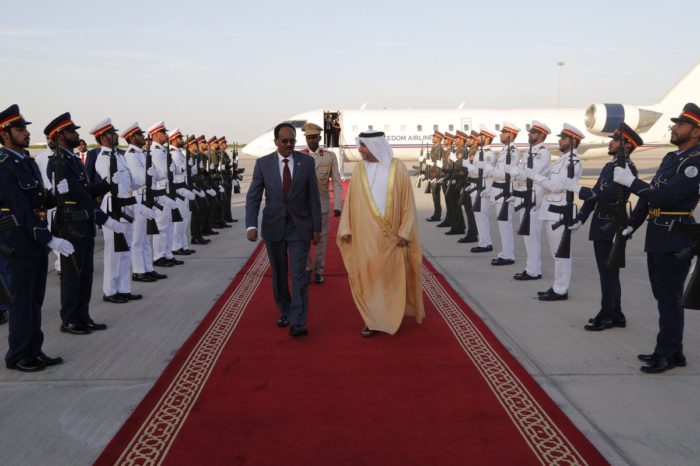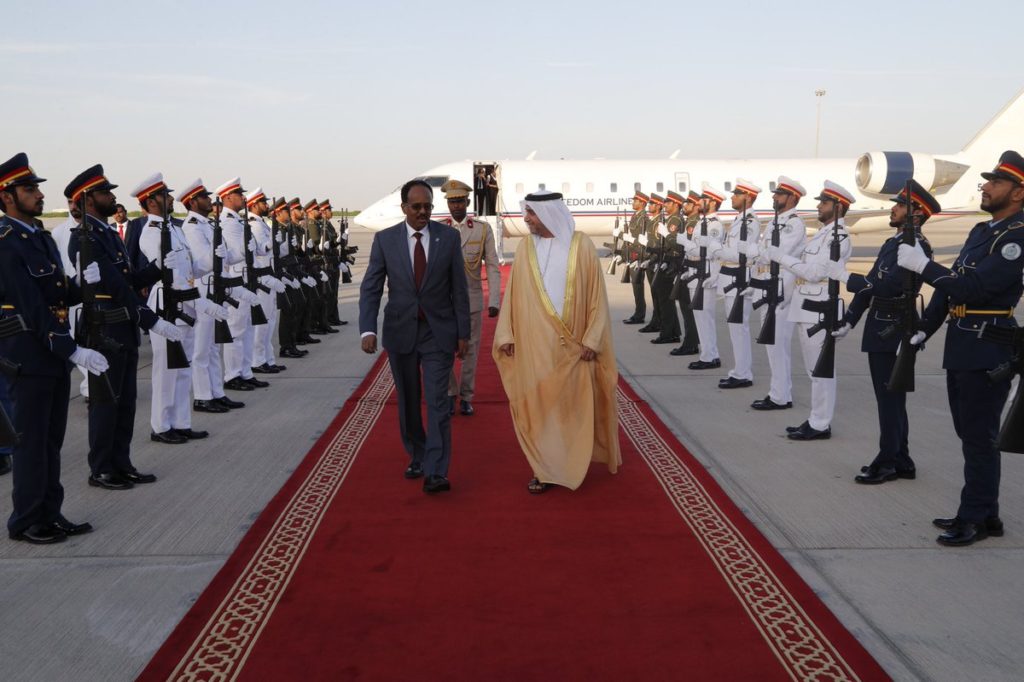Security Council did not acknowledge enormity of Gulf feud on Somalia-envoy


Somalia has protested the UN Security Council’s failure to take a firm position on the destabilizing effects of the Gulf Crisis on Somalia noting it was dismayed the Council only gave it a passing mention in the recently adopted Monitoring Group report.
Addressing the Council last week, Somalia’s ambassador to the UN Abukar Dahir Osman said Somalia expected a more concrete position on the matter which has caused political ripples in the country leading to sharp differences between the Federal Government and regional states.
“Whilst the resolution underscores the importance of working to prevent destabilizing effects of regional crisis spilling over into Somalia, it does not specifically call out the impact of the Gulf crisis on Somalia – be it from a political disintegration perspective or otherwise,” said Osman.
“It was our hope,” said Osman, “That the resolution would be more explicit in the need for respect for the political independence, sovereignty, territorial integrity and above all unity of Somalia.”
The report by the Monitoring Group on Somalia and Eritrea (SEMG) said President Mohamed Farmaajo’s administration had found itself isolated as a result of the Gulf Crisis. “Regional administrations, numerous Members of Parliament and parts of the influential Mogadishu business community have openly opposed this stance.”
President Farmaajo declared early June his government’s neutral stand in the Gulf feud but majority of the federal states opted to back the Saudi-UAE axis.
The report however took issue with the agreements between Somaliland and UAE to grant the Emirati navy a 30 years concession to build a base in Berbera port. It warned the implementation of the existing arms embargo on Somalia would be compromised. “The establishment of a foreign military base in Berbera, involving the transfer of military materiel to the territory, would constitute a violation of the arms embargo on Somalia.”
It is unlikely that any of the current standing exemptions to the arms embargo would apply, the report noted adding the move by UAE to unilaterally engage with Somaliland administration regarding the military base “serves to further undermine relations between the Federal Government and the Somaliland administration and, thereby, the long term stability of Somalia’.
Ambassador Osman also warned the existing arms embargo could be counter-productive to the National Security Architecture which Somalia presented for funding during the London conference.
“The existing arms embargo framework on Somalia supports a disintegrated supply of weapons and ammunition to multiple different security sector entities and may contribute to fragmenting our country in the worst possible way.” He called on the Council to align the arms embargo framework with the architecture of Somalia’s national security sector.